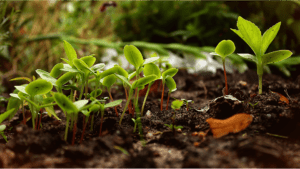What is Biodiversity?
Biodiversity refers to the variety of living organisms in a specific ecosystem. This includes different species of plants, animals, and microorganisms that interact with each other and with their environment. Biodiversity is essential for the health and functioning of ecosystems, including your garden.
Benefits of Biodiversity in Your Garden
1. Pest Control
Having a diverse range of plants in your garden can attract beneficial insects that help control pests. For example, ladybugs and lacewings feed on aphids, while predatory wasps prey on caterpillars. By encouraging a variety of plant species, you can create a balanced ecosystem where natural pest control measures are in place.
2. Soil Health
Diverse plant species have different root structures and nutrient requirements, which can help improve soil health. Some plants are known for fixing nitrogen in the soil, while others help break up compacted soil. By planting a mix of flowers, shrubs, and trees, you can promote a healthy soil ecosystem that supports plant growth.
3. Pollination
Biodiversity plays a crucial role in pollination, which is essential for the reproduction of many plants. Bees, butterflies, birds, and other pollinators visit flowers to collect nectar and pollen, transferring pollen from one plant to another in the process. By planting a variety of flowering plants, you can attract pollinators and increase the chances of successful pollination.
4. Resilience to Climate Change
A diverse garden is more resilient to environmental changes, such as fluctuations in temperature and rainfall. Different plant species have varying tolerances to drought, heat, and cold, which can help your garden adapt to changing conditions. By embracing biodiversity, you can create a garden that is better equipped to cope with the effects of climate change.
How to Promote Biodiversity in Your Garden
1. Plant Native Species
Native plants are adapted to the local climate and soil conditions, making them well-suited to your garden. By choosing native species, you can attract local wildlife and create a more sustainable ecosystem. Research native plants in your area and incorporate them into your garden design.
2. Create Habitat Diversity
Include a variety of habitats in your garden, such as meadows, wetlands, and woodlands. Different species of plants and animals thrive in different environments, so by providing diverse habitats, you can support a wide range of biodiversity. Incorporate features like birdhouses, bee hotels, and water sources to attract wildlife to your garden.
3. Avoid Chemicals
Chemical pesticides and herbicides can harm beneficial insects, pollinators, and other wildlife in your garden. Instead of relying on chemicals, try using natural pest control methods like introducing beneficial insects, practicing crop rotation, and using mulch to suppress weeds. Organic gardening practices can help maintain a healthy ecosystem in your garden.
4. Embrace Diversity
Don’t be afraid to experiment with a variety of plant species in your garden. Mix flowers, herbs, vegetables, shrubs, and trees to create a dynamic and diverse landscape. By embracing biodiversity, you can enjoy a vibrant and ecologically rich garden that supports a wide range of wildlife.
Conclusion
Biodiversity is essential for the health and resilience of your garden. By promoting diversity in plant species, creating varied habitats, avoiding chemicals, and embracing a mix of plants, you can create a sustainable and thriving ecosystem in your backyard. By valuing biodiversity in your garden, you can support local wildlife, enhance pollination, and contribute to a healthier environment.



